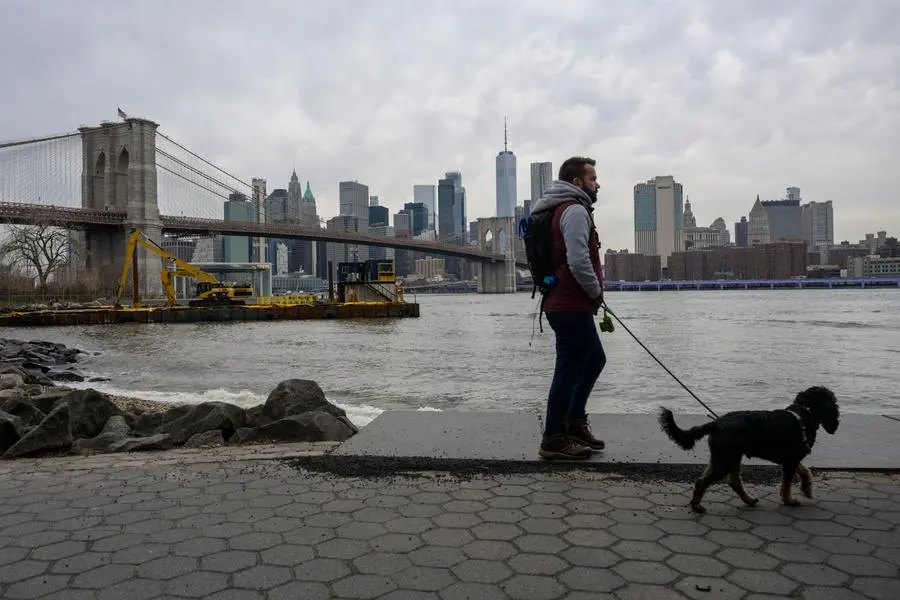PHOTO
The idea of New York in wintertime conjures up images of Manhattan's Times Square and Central Park shrouded in snow. Not this year.
The city is forecast Sunday to surpass a 50-year record for the latest first snowfall of the season.
It is also close to recording its highest number of consecutive days without any measurable flakes.
The snowless streak has New Yorkers puzzled, some questioning their love-hate relationship with the white stuff.
"It's really sad," said retired teacher Anne Hansen. "Basically, we don't like to see the snow. But now we're sorely missing it," she told AFP.
The Big Apple usually gets its first dusting around mid-December. Last season it arrived on Christmas Eve.
A heavy load often results in "snow days," beloved by children and office workers who gets days off school and work.
Kids grab their sleds and head to the nearest grassy slope. Adults cross-country ski around the main parks.
"You stay home, you drink hot cocoa; it's beautiful and the dog loves it," filmmaker Renata Romain told AFP.
Joy turns to despair fairly quickly though, as the snow turns yellowy-brown, trash piles up on the sidewalk and trips to the launderette become hazardous.
"The snow is pretty to look at the first day, but afterwards it's dirty and I don't like it. It's slushy. It's nasty," added Romain.
Meteorologists define snowfall in NYC as snow that measures at least 0.1 inches in Central Park. Some flakes fell last Wednesday but not enough to count.
The longest residents have had to wait for measurable snow is January 29, a record set in 1973, according to the National Weather Service (NWS).
No snow Sunday will mean the longest wait since records began in 1869.
New York is also approaching its longest streak of consecutive days without snow. The current record is 332, which ended on December 15, 2020.
Sunday would be day 326. Accuweather has called the period a "snow drought."
"It's very unusual," NWS meteorologist Nelson Vaz told AFP, saying the global La Nina weather pattern was responsible for keeping colder fronts further north and west.
Up to 40 inches (one meter) of snow fell in Buffalo, New York state, near the Canadian border, in December, killing at least 39 people.
But a few hundred miles southeast, in NYC and surrounding Atlantic coastal areas, the precipitation has meant lots of rain amid mild temperatures.
Only 1932 had a warmer first 25 days of January in New York than 2023, according to Weather.com.
Scientists say climate change is causing winters to be warmer and shorter.
"It's disconcerting," Hansen said of recent balmy days that have felt more like fall.
New York has never gone a whole cold season without measurable snow.
And with February usually its snowiest month, a white blanket could soon envelope the Big Apple yet.
"That's what makes New York, New York, right?" said Romain.





















